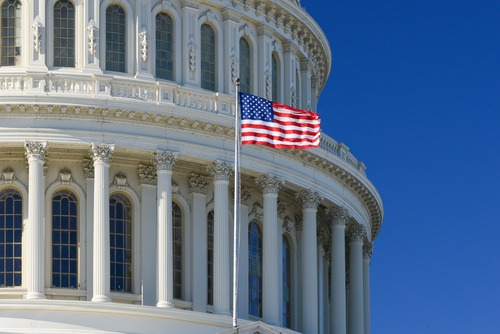
The U.S. Chamber of Commerce denounced last week’s reintroduction of the Protecting the Right to Organize (PRO) Act, which the world’s largest business organization argues includes “harmful policies” that would negatively impact the U.S. workforce and the country’s system of labor relations.
“This legislation strips workers of their privacy, threatens private ballots, imposes California’s disastrous independent contractor test, jeopardizes employers’ right to free speech, and threatens the loss of a job should workers choose not to pay union dues,” wrote Glenn Spencer, senior vice president of the Employment Policy Division of the U.S. Chamber of Commerce. “This bill is a threat to America’s workers, employers, and our economy.”
The legislation was reintroduced in the U.S. Senate last week by Senate Committee on Health, Education, Labor and Pensions Chair Patty Murphy (D-WA) and Majority Leader Chuck Schumer (D-NY). It was reintroduced in the U.S. House of Representatives with original cosponsors U.S. Rep. Brendan Boyle (D-PA), Robert C. “Bobby” Scott (D-VA), Frederica Wilson (D-FL), Andy Levin (D-MI), and Pramila Jayapal (D-WA).
PRO Act supporters say the legislation will protect workers’ right to join together and “bargain for fairer wages, better benefits, and safer workplaces,” a House Education and Labor Committee release stated.
“Unions are the backbone of the American workforce,” Boyle said. “When our unions are strong, all Americans benefit … The PRO Act will help shift the balance of power back to our workforce and provide real wage growth for the middle class.”
The Chamber, however, states that the PRO Act is nothing more than “a litany of almost every failed idea from the past 30 years of labor policy.”
Some of the “dangerous ideas” behind the PRO Act, the Chamber says, will undermine secret ballot elections, forcing workers to make their choice about unionizing public exposing them to threats and coercion from union agents; authorize “secondary boycotts,” which allow unions to launch disruptive protests and pickets against any employer; codify an expansive “joint employer” standard; eliminate all state Right-to-Work laws; impose mandatory union contracts if a union and employer do not reach an agreement; interfere with attorney-client confidentiality; and remove the ability of employers to keep workplaces open during strikes.